Living a Life for the Birds
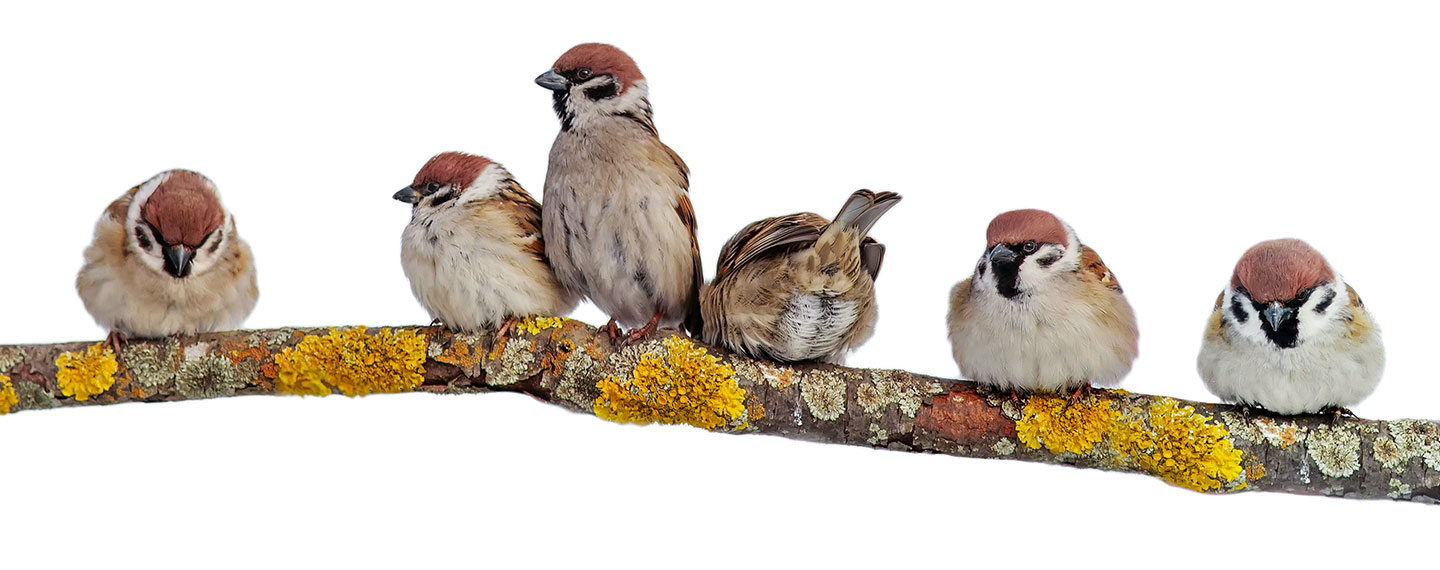
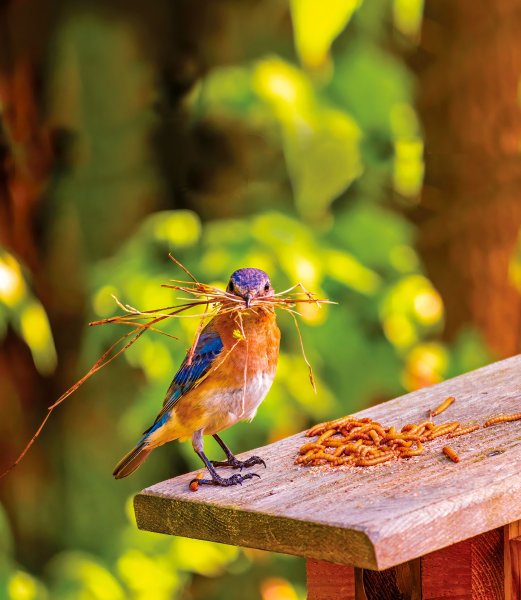
Business, medicine, law, finance, education, entertainment, the arts, journalism—OWU alumni have made remarkable achievements in virtually every field. Yet, as a percentage of its overall alumni, has any university in the country produced more ornithologists, bird experts, and bird lovers than Ohio Wesleyan?
Bird study has a long and rich history at Ohio Wesleyan. The university's natural history museum, which originated in the 1850s, houses more than 400 bird specimens, plus eggs and nests, for students and visiting scholars to examine. The Lucien Clark Memorial Endowment, established in honor of an alumnus from the class of 1862, continues to support the study of birds as well as trees and flowers at OWU.
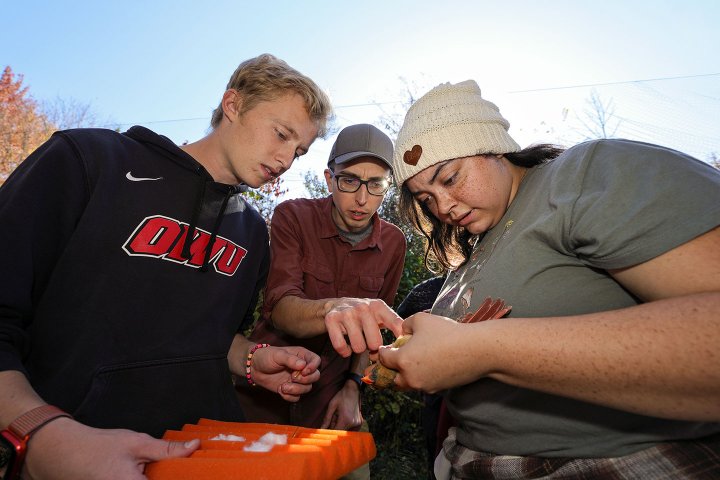
And alumni have gone on to do significant research—like Rod Suthers '60, who, as a professor at Indiana University, did pioneering research on how birds produce sounds. Dustin Reichard, associate professor in Ohio Wesleyan's Department of Biological Sciences, says Suthers's work was "arguably the most influential research yet on the production of bird song." He adds, "As my undergrad advisor once put it, 'Rod Suthers is the whole reason we know how birds sing.'"
Today, new generations of OWU alumni working with birds operate in a field where climate change, habitat loss, and invasive species are decimating bird populations while technological innovations are creating amazing new tools for their vocation and avocation.
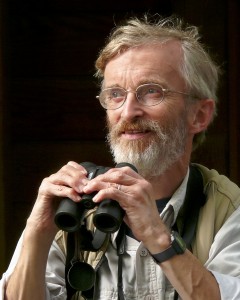
The latest era of ornithology at OWU began when Edward "Jed" Burtt joined the Department of Zoology in 1977. An OWU professor for 37 years, he mentored generations of students, sparking interest in birds and leading many students to careers in ornithology and bird conservation.
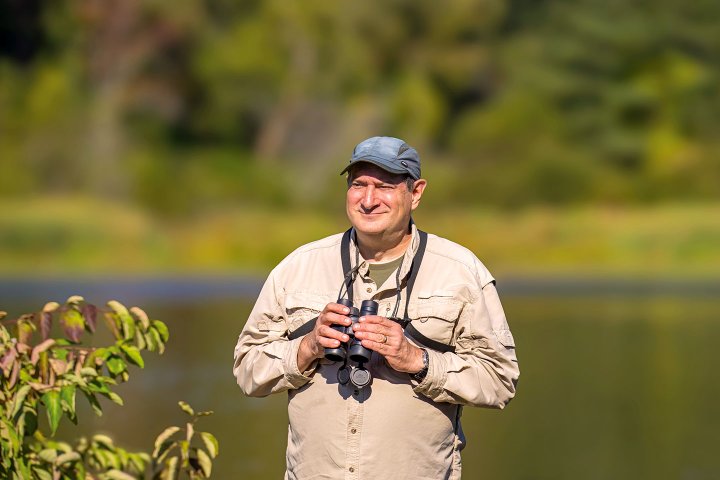
Burtt, who taught a long-running first-year seminar on avian microbiology (focused on the bacteria that live in birds' feathers) as well as ornithology classes, died in 2016. Yet, Burtt's legacy continues through a vast network of former students, who continue to refer to themselves as "Jedites," says Brady Porter '90, now a biology professor at Duquesne University.
Reichard joined OWU in 2015 and is carrying on the tradition of ornithology at OWU. In addition to continuing to teach an ornithology course for zoology majors, Reichard involves students in his research on the behavior and hormones of nesting wrens.
"I'm excited to be at a school that lets me teach a class called 'ornithology' and prioritizes it," says Reichard. Today, he explains, researchers often start with a broad question in evolution or ecology and then might choose a bird as the system in which to answer that question. "[But] the way I approach it," he says, "is I pick a bird and I let the bird kind of show me the way. What interesting things does it do, and what can I learn from that?"
Ohio Wesleyan alumni across the country are carrying that approach—and that enthusiasm—forward, contributing to bird science and conservation in a range of ways and finding hope in a world where nature constantly feels under threat.
Passions Kindled
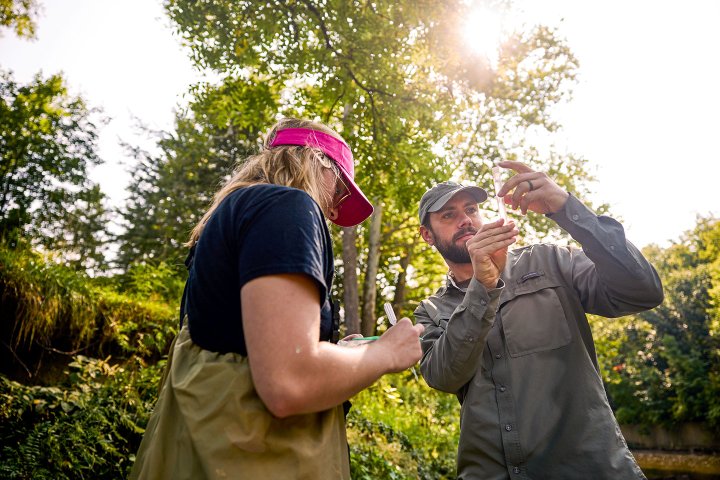
Some alumni in ornithology arrived at OWU already set on following a passion for birds. Sean Williams '11 grew up in urban Boston, where birds "were the only colorful, charismatic animals that you could actually see," he says. An avid birder from a young age, he happened to have a local mentor who knew Burtt and suggested he consider Ohio Wesleyan.
Burtt "was such an inspiring professor," says Williams. After growing up in what he describes as a "very poor, single parent home," where his interest in a career in ornithology was not taken seriously, the mentorship he received at OWU helped solidify his career aspirations, and he eventually received a Ph.D. from Michigan State University, where he studied the ecology of antbirds in Peru. Today, as a lecturer in biology at Cuyahoga Community College in Cleveland, he strives to provide similar support and guidance to his own students.
Others, however, never expected their careers to ultimately revolve around birds. Karan Odom '06 planned to be a pre-veterinary major when she enrolled at Ohio Wesleyan. "I knew I wanted to work with animals in some capacity, but I didn't really know that science or scientific research was a career option," she says. She signed up for Burtt's first-year tutorial in avian biology because she was excited to start getting hands-on experience with animals right away, "and the rest was history."
Burtt and another zoology faculty member at the time, Denny Radabaugh, eventually helped Odom design her own research project on owl vocalizations— "and I'm still studying bird vocalizations today!" she says. As a faculty member at University of the Pacific in California, she introduces undergraduate students to scientific inquiry in general and ornithology in particular through her research on the sometimesoverlooked songs of female birds.
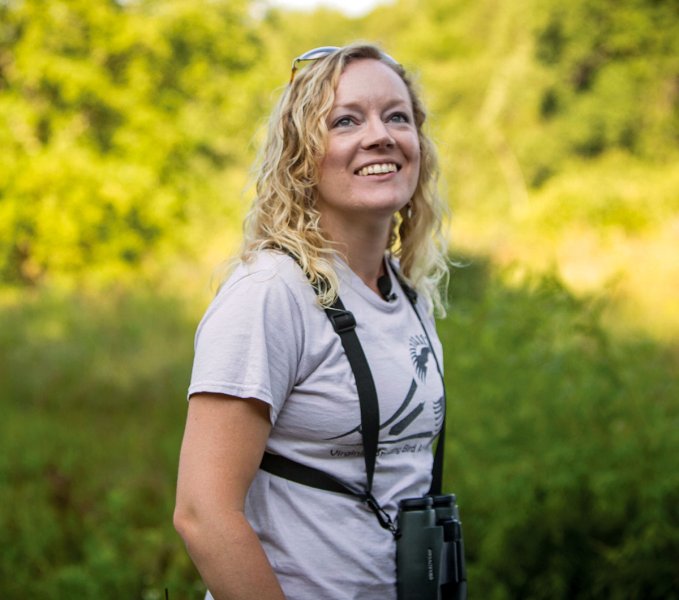
Ashley Peele '07 intended to major in chemistry until a chance encounter with Burtt at a banquet for incoming first-year students in the honors program. Seated together, they began chatting about the birds of Florida, Peele's home state. "He said, 'you really need to take my honors seminar,'" she says. "So I looked into it, and long story short, with that one class I just fell in love with the whole concept of field biology and ornithology."
Burtt "took her under his wing," says Peele. His influence eventually led her to a Ph.D. from Tulane University, where she studied overwintering warblers in Jamaica, and now a career at the American Bird Conservancy. "It's so wild to me when I think about it," says Peele. "It all came down to that chance meeting at a dinner, and my life trajectory completely shifted."
Many Paths
While some OWU alumni with a fervor for birds have gone on to become ornithology professors at other universities, others have followed different career paths.
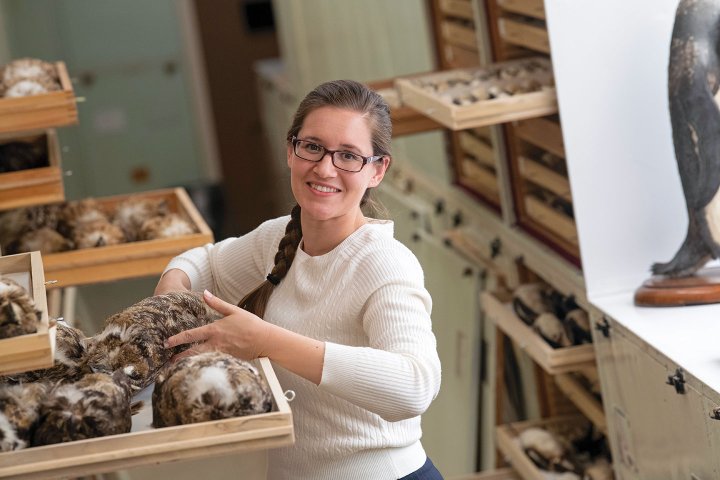
Sarah Luttrell '07 was first exposed to the behind-the- scenes work that goes on at natural history museums as a student curator for OWU's natural history collection—and today she works at the largest natural history museum in the world, the Smithsonian National Museum of Natural History in Washington, D.C.
Yet another former prodigy of Jed Burtt, who hired her for the student curator position, she says he was "very good at recognizing interest and fostering that in students from the beginning." After OWU, she worked at the University of New Mexico's Museum of Southwestern Biology and Colorado's Denver Museum before earning a Ph.D. from the University of Maryland, Baltimore County.
"After that, I landed the position that I'm in currently, which is in the Feather Identification Lab at the Smithsonian," she says. "What we do is identify the remains of birds that have been hit by aircraft. This information is used by a variety of stakeholders to try to increase aviation safety by preventing wildlife strikes in the first place and also mitigating the damage that they can do when they do happen."
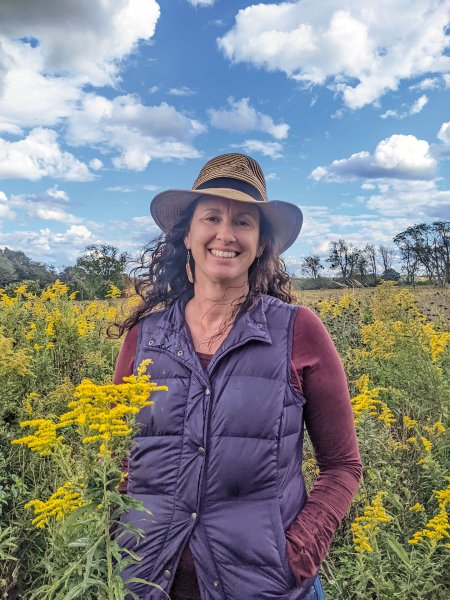
Another popular option for bird enthusiasts is the nonprofit sector. Khara Strum '01, like Odom, planned to become a veterinarian until she took ornithology. "It was transformative," she says. After graduation, she worked briefly as a temp in an office, but "I was like, no, I can't do this."
So, she turned to hands-on conservation work. After earning a master's degree in biology from Kansas State University, she moved to California and spent 13 years working first for the Point Reyes Bird Observatory (now Point Blue Conservation Science) and then for Audubon California.
The faculty at Ohio Wesleyan "opened me up to new horizons that I didn't know were possibilities until I worked with them," says Strum. In March 2024, she became the executive director of the Ohio Ecological Food and Farm Association, pursuing an interest in environmentally friendly farming that she first developed while working with farmers on bird habitat conservation during her time at Point Reyes.
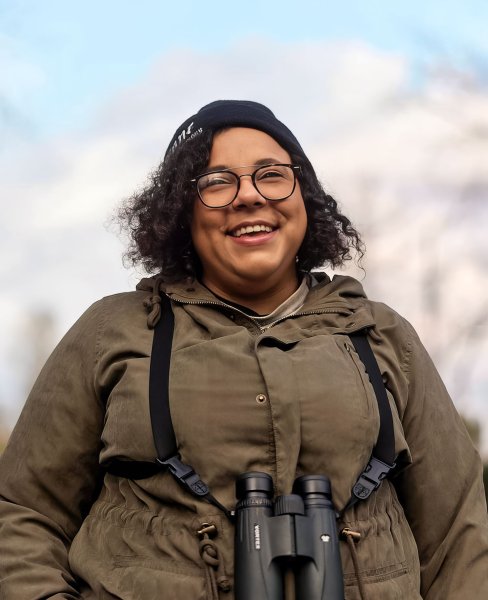
Samantha DeJarnett '12 is quick to specify that she is not an ornithologist, but she, too, is making her mark on the bird world. Shortly after she started at OWU, her academic advisor connected her with a wildlife rehabilitation internship at the Lake Erie Nature and Science Center in Cleveland.
"That was my first encounter with birds, and I loved it," she says. Although DeJarnett ultimately changed her major from zoology to English, she remained interested in wildlife rehabilitation after graduation, eventually working for the rehabilitation center at Oregon's Portland Audubon (now the Bird Alliance of Oregon) for several years.
DeJarnett left that job after what she describes as a series of uncomfortable experiences as a Black woman at the organization. Then, in May 2020, Black birder Christian Cooper was threatened by a white woman in New York City's Central Park and captured the incident in a video that went viral, sparking a national conversation on birding while Black. Soon, Black bird enthusiasts around the country launched a social media event called Black Birders Week—and DeJarnett found herself introduced to a broader community of Black birders for the first time.
Today, DeJarnett hosts a podcast called Always Be Birdin' about being a Black birder, leads outings for BIPOC birders for the U.S. Fish & Wildlife Service, and serves on the board of Amplify the Future, a grassroots nonprofit that provides grants and scholarships for Black and Latinx birders.
In her sophomore year at OWU, DeJarnett was introduced to the House of Black Culture, eventually becoming the house's moderator. "What that did for me was start to teach me about community, especially the Black community, and [what it means] to have struggle alongside joy."
Finding Hope
Feeling a deep passion for the natural world can mean opening oneself up to grief and sorrow. Climate change and ecological disasters seem to make the news on a regular basis. And in 2019, a large group of scientists published a paper estimating that North America is home to 3 billion fewer birds today than in 1970—a staggering 29% decline.
So how do Ohio Wesleyan alumni whose careers and lives center on birds find hope?
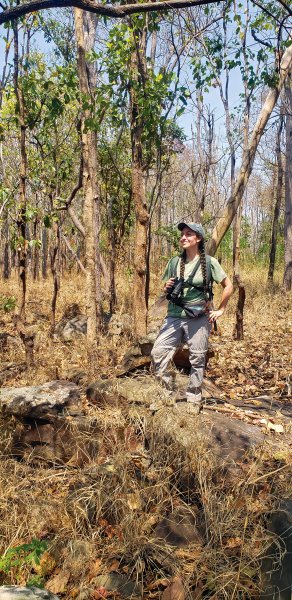
"The thing that really gives me hope is just the birds themselves," says Aubrey Alamshah '13, who this year completed her Ph.D. from Binghampton University, where she studied the behavior of crows in Thailand. She plans to work in conservation.
"I think that sometimes you have to step back from the computer, step back from the news and all the problems, and just go back out and connect with what made you want to conserve these incredible creatures to begin with," she says.
Brady Porter agrees. "We think of a lot of these birds as 'our' birds, but they're only here for part of the summer to breed, and then they migrate back down to Central and South America," he says. "Those people appreciate these birds as well, and when both sides see them decline, it might bring us together to tackle the problems that they have throughout their entire annual cycle."
When Dustin Reichard was studying small songbirds called juncos for his Ph.D., he worried because "it felt like they were getting pushed further and further up the mountain as the temperatures rose, and so we were like, this is awful, the species could become locally extinct at some point in this place where we've studied them for decades."
But he sees resilience in nature, too—for example, he points to juncos in southern California that used to migrate to the mountains to nest but have now started breeding in cities along the coast. "The fact that there's this flexibility in how they behave gives me hope that some of these species are going to be resilient enough to manage the changes we're throwing at them."
He also finds reason for optimism in the undergraduates he works with at OWU. "The students that come through OWU are so passionate. Every year we get a new crop that want to grow up and be conservationists and do things differently and change the world. Being a part of that environment, we try and foster those feelings and help put those students on a path where they can be influential right out of the gate. They give me hope that maybe we're eventually going to get people in power who care enough to want to make a change."
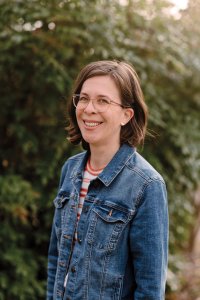 Rebecca Heisman '09 is a freelance science writer based in Walla Walla, Washington, who writes primarily about bird conservation and ornithology.
Rebecca Heisman '09 is a freelance science writer based in Walla Walla, Washington, who writes primarily about bird conservation and ornithology.
